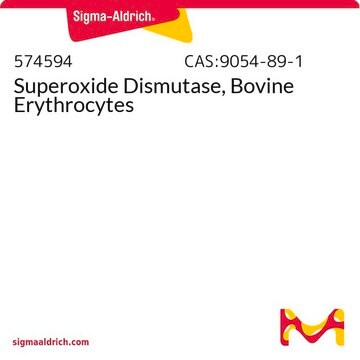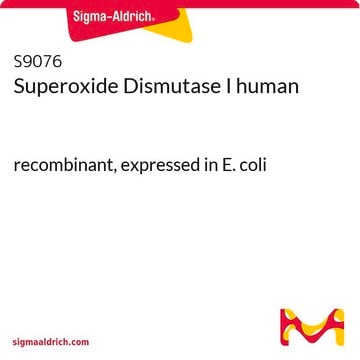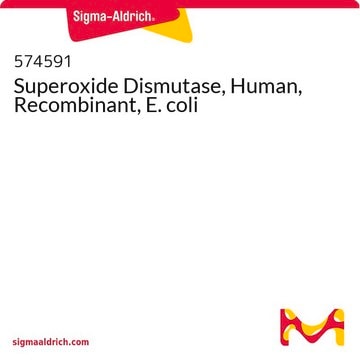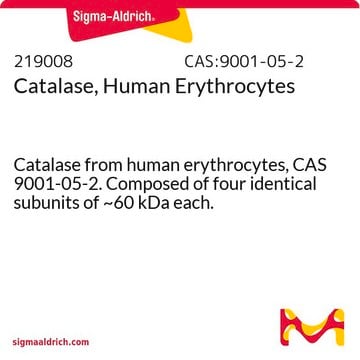S5395
Superoxide Dismutase from bovine erythrocytes
BioReagent, ≥3,000 units/mg protein, lyophilized powder, suitable for cell culture
Synonym(s):
SOD, Superoxide: superoxide oxidoreductase
About This Item
Recommended Products
biological source
bovine erythrocytes
product line
BioReagent
form
lyophilized powder
specific activity
≥3,000 units/mg protein
mol wt
32.5 kDa
packaging
pkg of 15000 units
technique(s)
cell culture | mammalian: suitable
pH
7.6-10.5
shipped in
dry ice
storage temp.
−20°C
Looking for similar products? Visit Product Comparison Guide
General description
Application
- for measuring the superoxide radical using the electron paramagnetic resonance spin in human brain microvascular endothelial cells
- for measuring superoxide production in cytochrome C assay in peripheral blood mononuclear cells
- as a standard in characterization of hen egg SOD using Fourier-transform infrared spectroscopy (FTIR) and matrix-assisted laser desorption/ionization (MALDI) analysis
Biochem/physiol Actions
Unit Definition
Analysis Note
Signal Word
Danger
Hazard Statements
Precautionary Statements
Hazard Classifications
Resp. Sens. 1
Storage Class Code
11 - Combustible Solids
WGK
WGK 1
Flash Point(F)
Not applicable
Flash Point(C)
Not applicable
Personal Protective Equipment
Certificates of Analysis (COA)
Search for Certificates of Analysis (COA) by entering the products Lot/Batch Number. Lot and Batch Numbers can be found on a product’s label following the words ‘Lot’ or ‘Batch’.
Already Own This Product?
Find documentation for the products that you have recently purchased in the Document Library.
Customers Also Viewed
Protocols
Enzymatic Assay of Superoxide Dismutase
Separation of Superoxide dismutase
Chromatograms
application for HPLCOur team of scientists has experience in all areas of research including Life Science, Material Science, Chemical Synthesis, Chromatography, Analytical and many others.
Contact Technical Service












